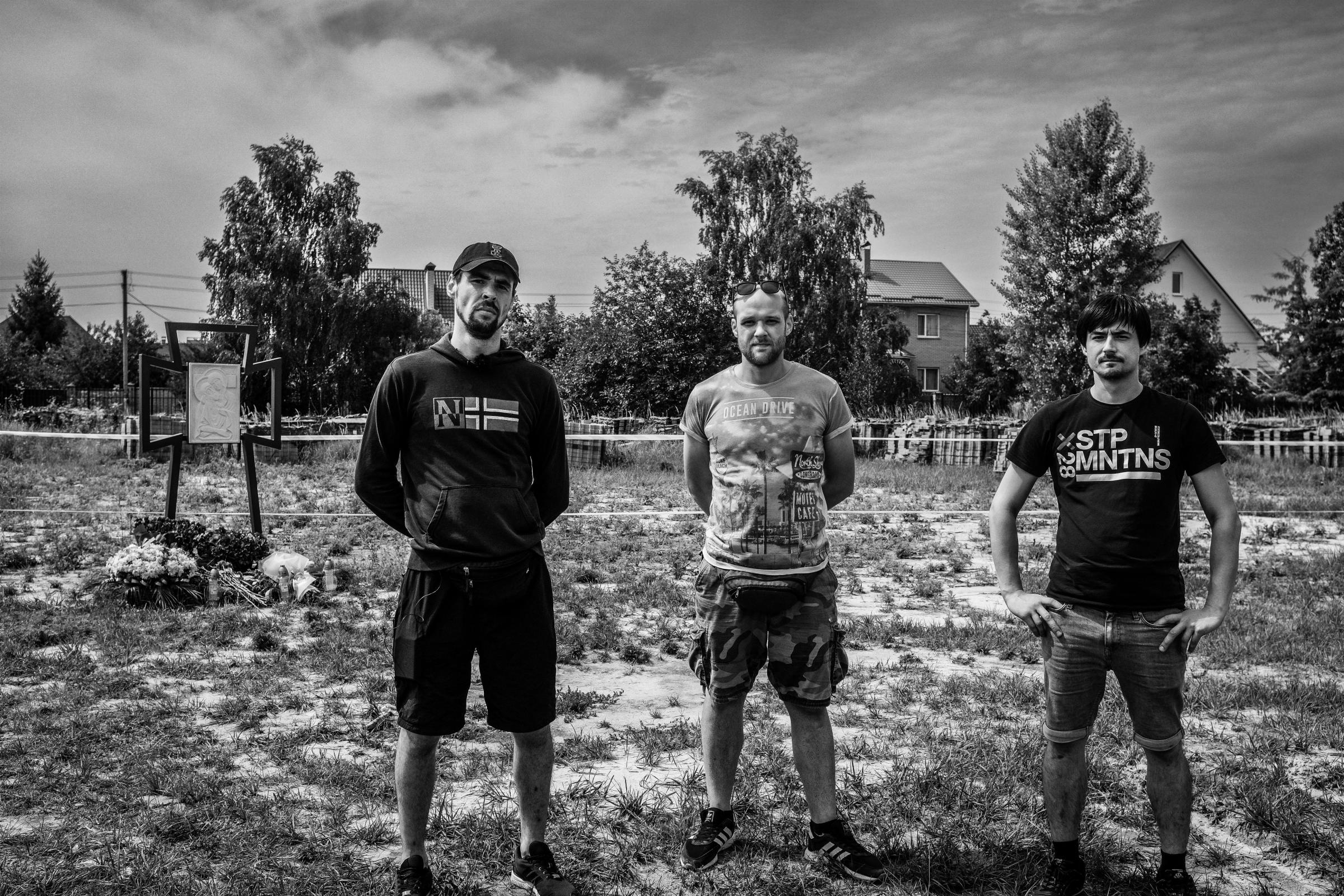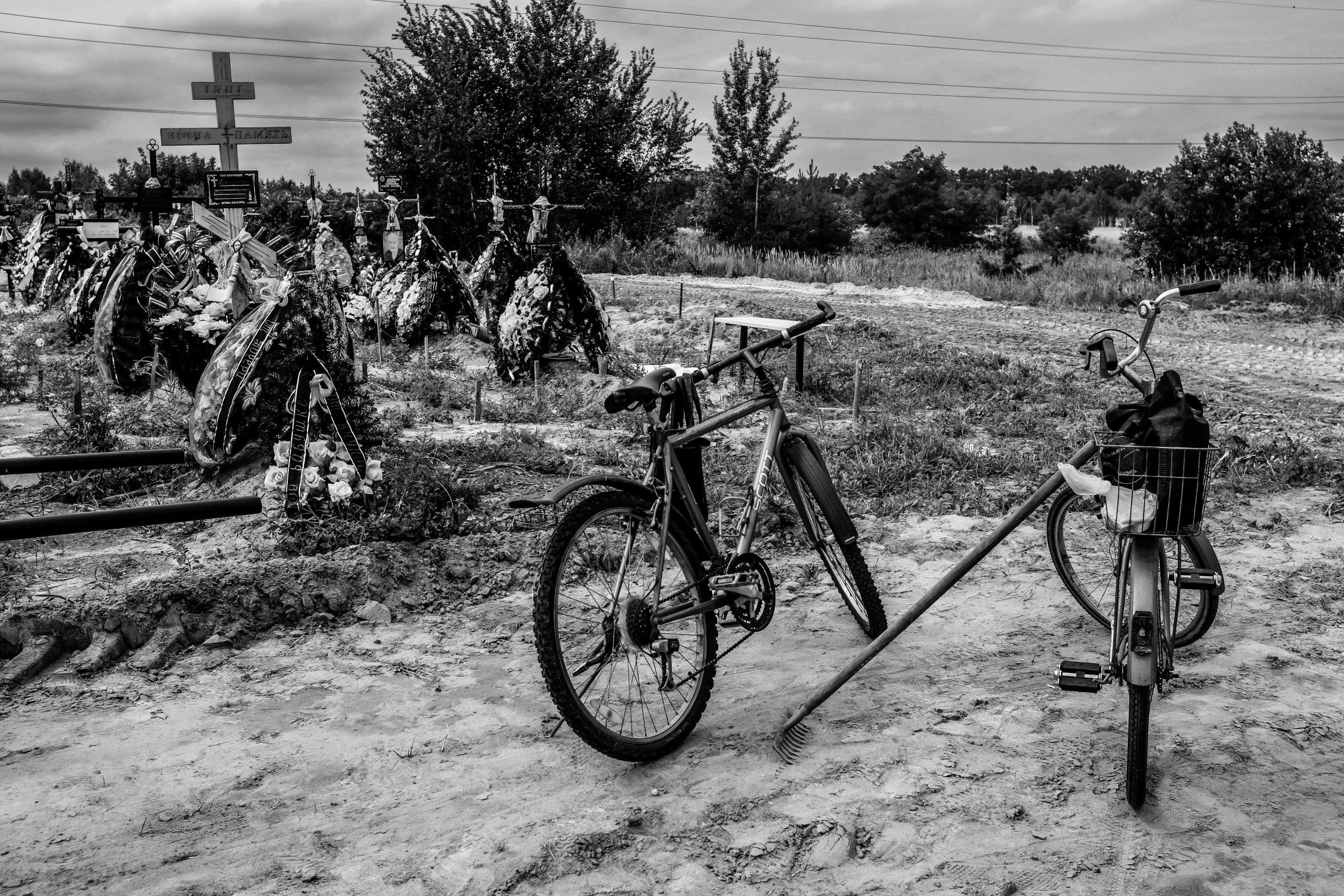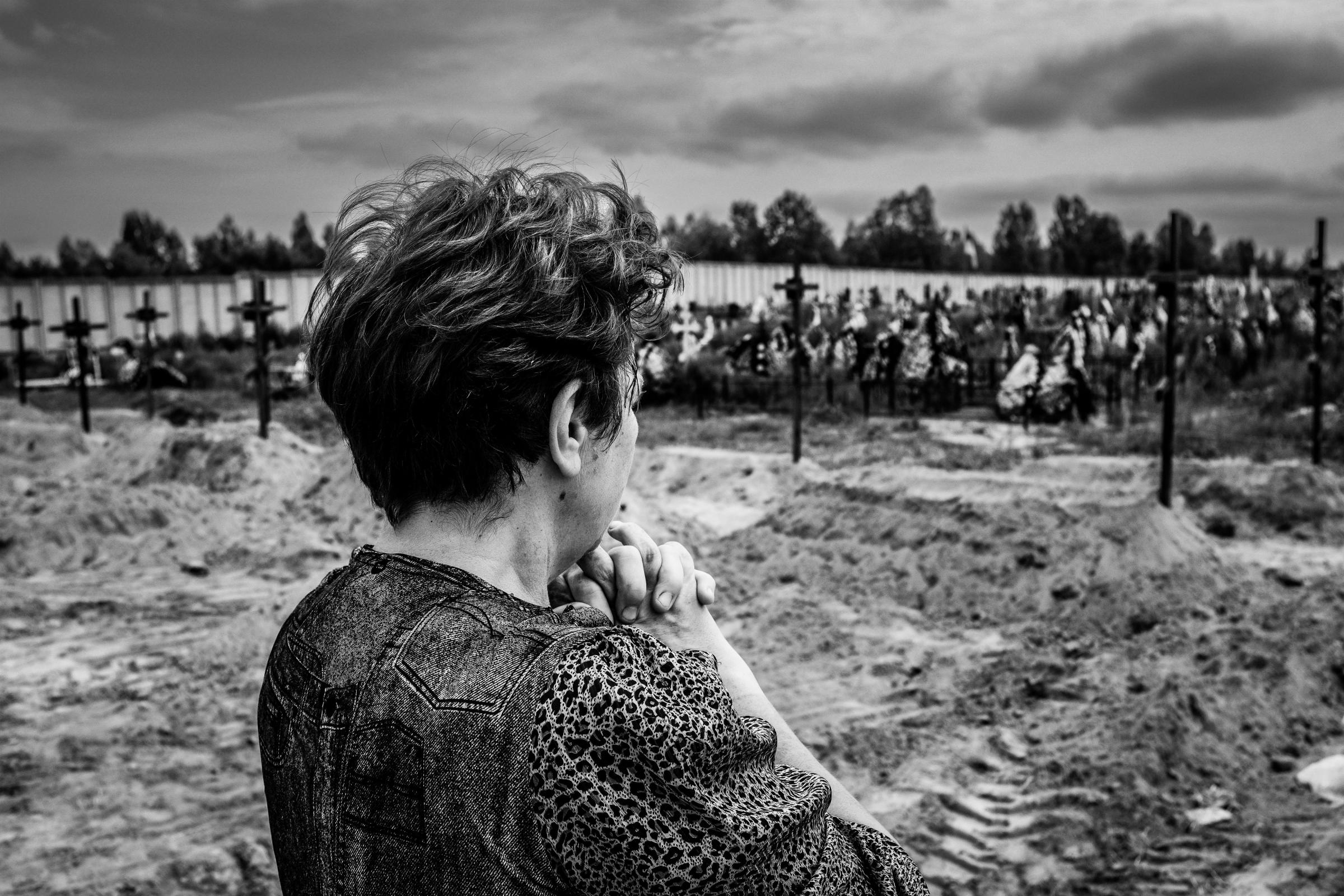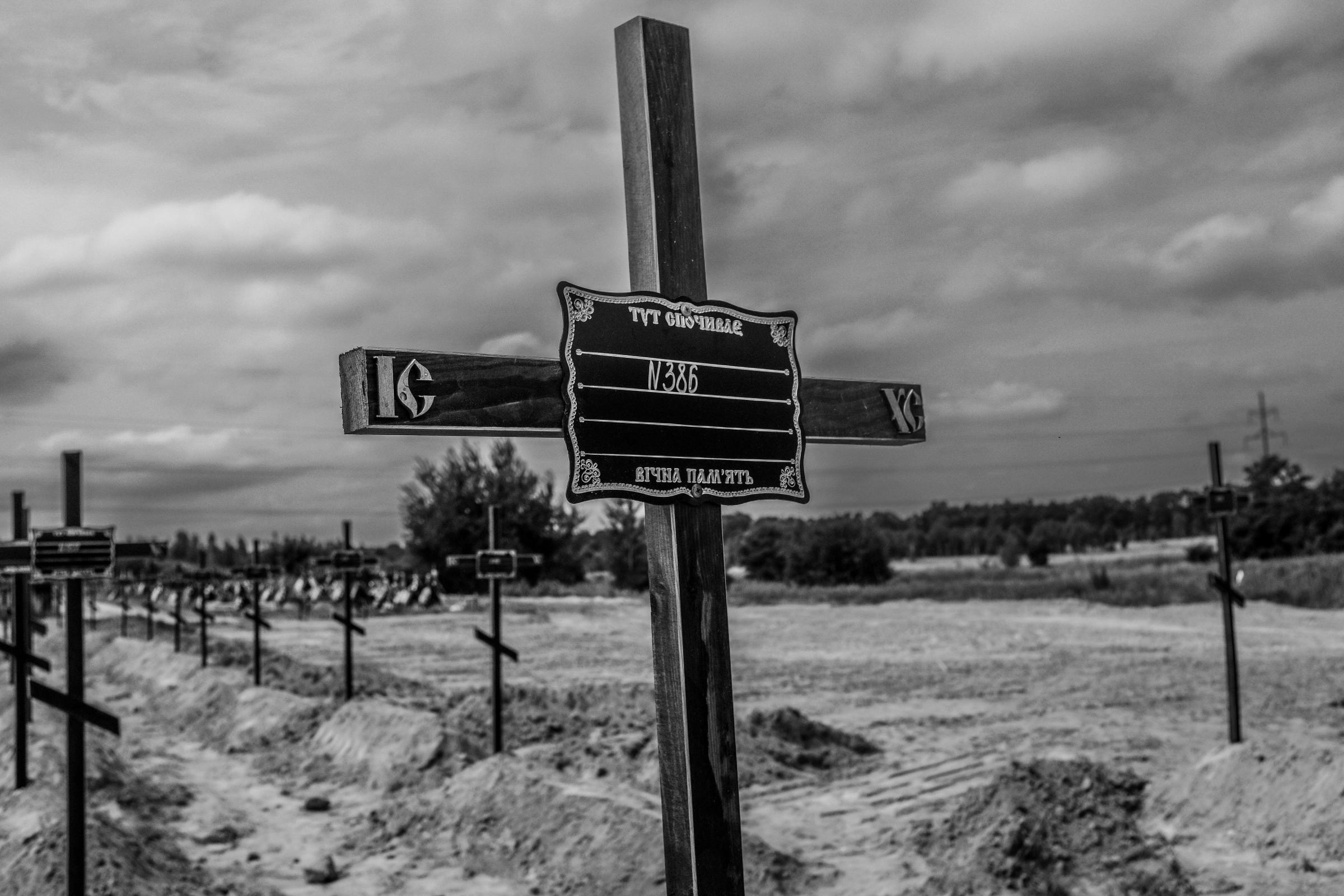
In the latest of his dispatches from places that bore the early brunt of the Russian invasion, Foreign Editor David Pratt reports from the Ukrainian city of Bucha, where people are still coming to terms with their losses and atrocities that took place...
ALL three are young men. In fact, Vitaliy Chaika tells me that today is his 24th birthday and that once our chat is over, he’s heading off to have a celebratory barbecue and some beers.
It’s a far cry from the mood and exchanges that took place between Chaika and his two friends, Andriy Makarov and Vitaliy Mekekechko, almost six months ago now, when they stood on this same spot adjacent to Bucha’s Church of St Andrew the Apostle.
Back then, this was the scene of a mass grave where, almost daily, Chaika and his two volunteer friends would deposit the bodies and human remains they had gathered from the streets, fields and waste ground around Bucha.
Almost all those victims they recovered were civilians. In total, authorities in Bucha say 116 bodies were uncovered from the grave at the church grounds in the wake of the withdrawal by Russian forces in April after the city was liberated by Ukrainian forces.
This though was only a fraction of the current – and still growing – tally of civilian victims, which a painful and at times gruesome investigation now numbers at 458 bodies – of which 419 bore markings they had been shot, tortured or beaten to death.
When Chaika, Makarov and Mekekechko took to the streets back in March, they did not do so in an official capacity. The presence of Russian troops and absence of functioning services in Bucha made that near impossible.

Instead, these three young men, driving a pick-up truck, decided voluntarily – at enormous risk – to run the gauntlet of marauding Russian soldiers, something that could easily have cost them their own lives. What spurred them to take on such a role, the very thought of which is the stuff of nightmares for most people?
“It was impossible just to sit there and do nothing after seeing these corpses lying in the streets. I didn’t think of it as an official duty, it was just the right thing to do,” explains Chaika in a characteristically matter-of-fact way that I quickly notice is the hallmark of the responses to my questions from all three.
There was nothing boastful about this manner of speaking, rather it came across as simply honest and heartfelt.
At first, the main task of their rounds across the city was to deliver badly-needed food and other supplies to cut-off neighbourhoods or individuals unable to flee the city and who were especially vulnerable.
“People we would meet would tell us of bodies nearby and ask if we could remove them because of the stench, and so we began to do this too,” says Makarov, who is also in his 20s and today works in one of Bucha’s restaurants – just as he did before the Russian invasion brought carnage to the city.
Had any of the three ever seen a dead person before the war I asked, aware from mobile phone footage they had shown me of the terrible sights encountered in Bucha’s devastated neighbourhoods that few people would have been able to stomach or cope with? All three said they had only ever before seen the bodies of dead relatives at funerals. As Mekekechko explained with typical understatement: “These violent deaths on the street were something very different.”
So many were the bodies littering the streets before them one day that Chaika chillingly compared their recovery to being like “picking mushrooms.”
More than once, they were spotted by the Russians. On one occasion, the machine gunner in an armoured personnel carrier began firing on their truck, and the three only managed to give the Russian troops the slip and survive unscathed.
Today, all three men go about what passes in war-ravaged Ukraine these days for “normal” lives. While Chaika is currently out of work, both Makarov and Mekekechko are employed in restaurants, the busyness of which – despite the continuing curfew and periodic wail of air raid sirens – could almost make you forget that the country remains in the throes of a war inflicting a heavy toll on Ukrainians.
Does what they have witnessed close up now still trouble them, and is it difficult to erase from the mind’s eye, I ask. “I don’t have any problems, no nightmares psychological stuff, but I won’t forget,” admits Chaika as the others nod in agreement.
I enquire, too, whether having seen the evidence of atrocities means their attitude toward Russians differs now from what it did before the war.
Again, they agree with Chaika’s observation that “not all Russians are the same or can be blamed for what happened in Bucha” and elsewhere across Ukraine.
Today, there is little to remind any visitor to the grounds of the Church of St Andrew that, not that long ago, some 116 victims were temporarily interred in the mass grave here, before their removal for forensic examination and final burial at Bucha’s main cemetery.
The same day that I talked with Chaika and his friends, I also visited Bucha’s main graveyard, where most victims are laid to rest. Just before my arrival at the cemetery, and almost six months after the corpses were first found, in graves marked only with numbers, the local authorities had buried 11 more unidentified bodies, some of whom had been exhumed from the mass grave at the church.

Despite months of intensive forensic research and DNA testing aimed at identifying the dead, re-uniting them with family to provide emotional closure and giving them proper burials, the decision to bury their remains had finally been made.
Eight men and two women initially interred at St Andrew’s Church were among them. An 11th victim had been shot dead and was found in the village of Chervone, just over 10 miles outside of Kyiv.
Identification of these victims may yet still happen, given that DNA samples were taken and stored in a local database. This and the fact that about half of Bucha’s pre-war population that fled the Russian invasion and brief occupation have yet to return to the city gives some hope that those numbers on wooden crosses marking the graves will ultimately become names.
For now, as Father Andriy, an Orthodox priest who led the latest burial service, observed: “God knows their names.”

Many of the other victims of Bucha’s killing and atrocities have, of course, already been identified. In some cases, their faces peer out from photographs placed alongside their names on the gravestones that detail the dates of their deaths during those now-infamous days earlier this year.
On one gravestone, the picture of a young woman wearing a party hat and holding a cocktail glass looks out, while in another, it’s the image of an elderly man, who was most likely a father or grandfather, reminding us that Bucha’s victims spanned all generations.
The civilian killings in this town have long since become a symbol of the brutality of the war in Ukraine. As with elsewhere across the country, the nightmares they invoke will prove indelible for some – if not all – who witnessed them close up.
The bravery of those like Vitaliy Chaika, Andriy Makarov and Vitaliy Mekekechko, who came to the aid of their fellow citizens both alive and dead at great risks to themselves, is to be admired. What they witnessed will indeed be impossible to forget as they try to pick up their lives amidst a still ongoing war.
As promised, after our conversation in the grounds of St Andrew’s Church that day, Chaika headed off for his barbecue and beer birthday celebrations.
Behind him, on the very spot where we chatted, lies a small monument and ribbon of red tape marking the precise site of the mass grave that only a few months ago, he and his friends had no choice but to use in disposing of Bucha’s dead at the hand of Russian soldiers. Even amid a terrible war, life, as they say, goes on.






